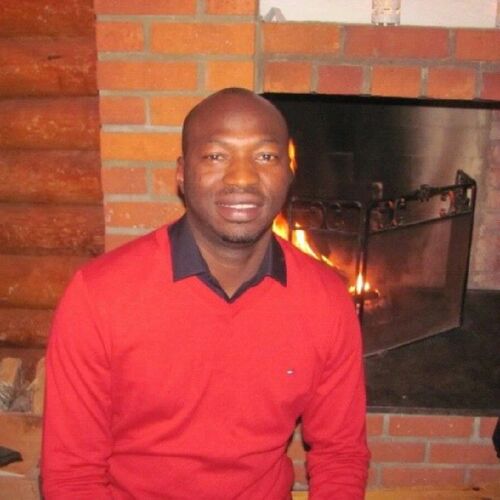
The recent suspension of USAID’s activities has sent ripples across the global development landscape. For many in the Global South, especially African researchers and institutions, it is not just another bureaucratic hiccup. It is a hard reminder of the fragility of donor-dependent systems and the urgent need to rethink how development research is funded, prioritised, and governed.
In countries like Nigeria, where complex emergencies linked to climate vulnerability, insurgency, and poverty are layered, USAID has played a central role in shaping not just interventions, but research directions. From funding field studies in displacement camps to supporting policy research on peacebuilding, its footprint is significant. But therein lies the risk. When a single donor holds such influence, a sudden policy shift in Washington can destabilise entire research ecosystems in Maiduguri, Kano, or Sokoto.
What is at stake, really, is not just the money, but momentum. Projects that were building local research capacity, that were beginning to shift the narrative from externally-led to locally-driven, now face uncertainty. For emerging scholars working on issues like gendered impacts of conflict, youth livelihoods in fragile contexts, or climate-induced displacement, the funding freeze could mean stalled careers, unpublished findings, or lost data.
This disruption compels us to reflect more critically. Should African development research be this vulnerable to the decisions of a foreign agency?
The answer, respectfully, is no.
Building Forward: A Strategic Response
This moment should be seen not only as a challenge but also as a wake-up call and an opportunity. We must begin to move from aid to agency, investing in research agendas that are shaped by our lived realities, funded through diversified sources, and managed through accountable local institutions.
One path forward is to rethink partnerships. Over the past decade, the push for equitable research collaboration has gained ground, with calls for more African-led studies and less extractive academic relationships. The USAID suspension reinforces this argument. We must now accelerate the trend toward South-South research partnerships, pan-African research consortia, and multi-stakeholder collaborations that include universities, think tanks, civil society organisations, and even local businesses.
One successful model worth noting is CODESRIA, the Council for the Development of Social Science Research in Africa. For decades, it has provided critical funding and intellectual platforms for African scholars. Institutions like this demonstrate that it is possible to sustain excellence and thought leadership through regionally driven initiatives.
We must also look inward. Countries like Nigeria, despite economic challenges, cannot afford to leave research funding entirely to external actors. Budgetary allocation for research, particularly in conflict, development, and climate, must be protected and separated from political discretion.
In addition, African research institutions must develop practical and resilient sustainability models. This involves creating income-generating units such as consultancy services, short courses, policy advisory labs, and knowledge translation platforms. They can also engage strategically with innovation funds, climate finance windows, and corporate social responsibility frameworks. These are emerging sources that, if well coordinated, can reduce reliance on any one donor.
Furthermore, diaspora contributions, philanthropic networks within Africa, and regional collaboration platforms like the African Research Universities Alliance (ARUA) and CODESRIA should be leveraged not as stopgaps, but as foundational support structures. These options offer long-term potential for a more stable and autonomous research environment.
But all these shifts require a mindset change. Many institutions across Africa still operate with rigid, donor-defined systems. If we are to thrive in a time of uncertain donor flows, our institutional frameworks such as ethics review, human resources, and financial management must become more responsive, transparent, and efficient. We need structures that serve our context, not just donor requirements.
For scholars like myself, engaged in both research and policy practice, the USAID episode is a call to action. We must improve our ability to engage policymakers so that our findings influence national development strategies. We must collaborate with media and civil society to ensure that evidence is used to inform change. Research must not remain buried in reports and academic journals. It must shape programmes, inform investments, and give voice to local priorities.
Finally, international donors and development agencies must also reflect. If development is to be truly inclusive and locally owned, then its funding mechanisms must not be so vulnerable to political change. Investments must be long-term, built around equitable partnerships, and designed to strengthen institutions from within.
In conclusion, while the suspension of USAID is certainly a setback, it is also an invitation. We can either lament the loss or take the chance to reimagine a future where African research is resilient, independent, and grounded in context. The time has come to fund differently, partner more fairly, and think beyond traditional aid.
Bio
Taofik Oyewo Hussain is a Principal Research Fellow at Nigeria’s Institute for Peace and Conflict Resolution under the Ministry of Foreign Affairs. His research focuses on the political economy
of donor engagement in fragile contexts, particularly in Nigeria’s Sahel region. With over 14 years of experience in humanitarian and peacebuilding work, he contributes to policy and academic debates on climate adaptation, conflict prevention, and locally led development.